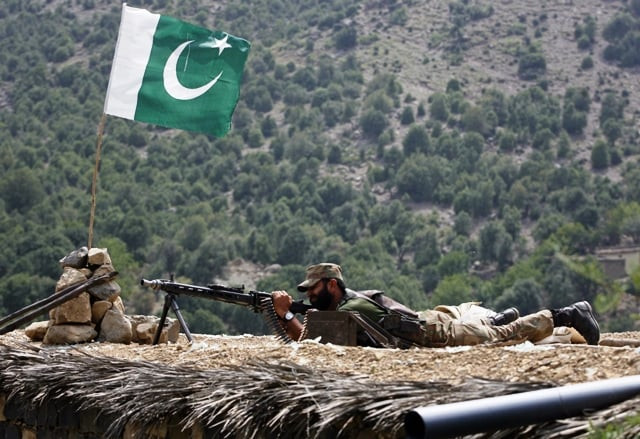Attack in Chitral
One lesson the Pakistani Army needs to learn is that it cannot treat different tribal agencies as separate entities.

Attack in Chitral
Maulvi Fazlullah, in particular, has been hitting Pakistan as often as possible. Among the more daring attacks ascribed to him was a bombing that targeted ANP Senator Zahid Khan in Dir, earlier this year. He has also been accused of carrying out kidnappings in Dir for the past year. It has become clear that militants targeted by the Pakistan Army are easily able to cross the porous border and bide their time in Afghanistan.
The situation is even more perilous as the militants know that the US will begin phasing its troops out of Afghanistan from next year. Afghan President Hamid Karzai has shown little willingness to secure the border and tackle the TTP militants hiding in his territory, preferring instead to constantly blame Pakistan for attacks in his country. Both sides need to admit that they have a responsibility to stop such attacks and need to step up their efforts without indulging in a blame game. It is hard enough to fight the militants while carrying on a war of words with someone who can be a natural ally in this battle.
The one lesson the Pakistani Army needs to learn is that it cannot treat different tribal agencies as separate entities. Military operations will have limited effectiveness if they do not take into account the ability of militants to flee the area and take refuge in any one of North and South Waziristan, Mohmand Agency, Bajaur Agency or settled districts like Swat and Dir. It has become obvious that the Pakistan Army cannot hold these areas simultaneously, and even if it were able to do so, the porous border with Afghanistan remains a problem.
Published in The Express Tribune, August 30th, 2011.















COMMENTS
Comments are moderated and generally will be posted if they are on-topic and not abusive.
For more information, please see our Comments FAQ